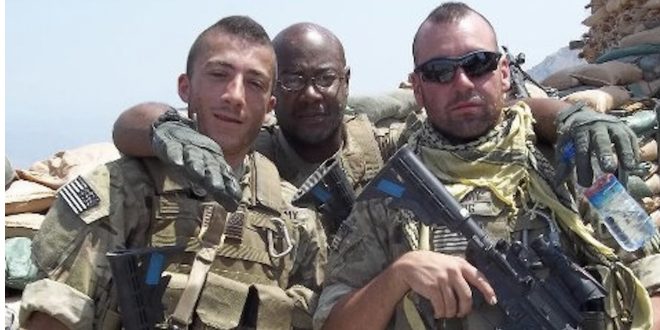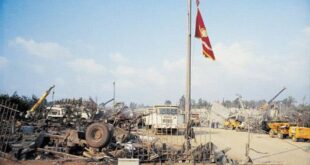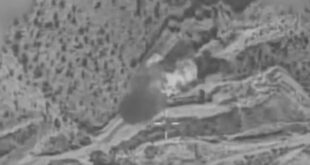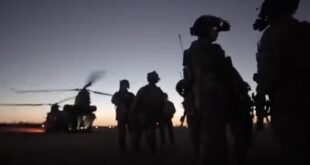by Susan Katz Keating
The Ninth Situation of War, when you must fight without delay, is Desperate Ground – Sun Tzu
“Watson. Wake up. Woods. Everyone. Wake the hell up.”
The sentinels raced through the lean-to, alerting the team with urgent news: the Taliban were at the wire.
Hours earlier, Sgt. Brian Wood’s nine-man squad had been kicking back with Pepsi, listening to music, and swapping stories under a full moon. They were atop Outpost Nevada, some 12,000 feet above the Ganjgal Valley in Afghanistan’s deadly Kunar Province. Now, on the morning of 17 July 2011, the men were being rallied, for what would turn out to be a brutal 18-hour slugfest against an overwhelming enemy force. By battle’s end, this handful of Americans would earn the respect of an enemy whose ancestors confounded even Alexander the Great. These Americans were not SEALs. They were not Rangers. They were the Mad Dogs: Delta Company’s second platoon from the 1-182nd Infantry, Massachusetts National Guard.
The Mad Dogs were a disparate bunch. They included a pizza delivery man, a used car salesman, a nightclub manager, a cook, a skateboarder, and seasoned veterans – led by a platoon sergeant who also was a convicted felon. They arrived in Kunar in June, as the security force to a provincial reconstruction team (PRT) at Forward Operating Base (FOB) Wright in Asadabad.
At the time, Big Army’s 25th Infantry Division was taking heavy hits during Operation Hammer Down, which targeted insurgent camps in the Pech Valley. The Taliban there were hardened warriors, willing to stand and fight the Americans. According to a U.S. Army study, “every engagement was essentially a meeting engagement.”
Shortly after arriving at FOB Wright, the Mad Dogs were on the tarmac when wounded men arrived directly from combat in Watapur. Amid chaos, the Mad Dogs plunged into action. Corporal Pat Camillo, an EMT in civilian life, immediately began working to save lives. Others did too. The Mad Dogs offloaded soldiers from MEDEVAC helicopters, rushing men to surgery – or zipping them into body bags.
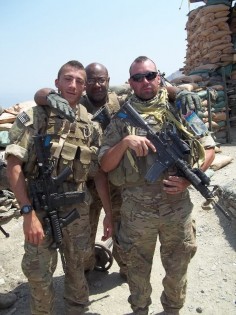
The following morning, the Mad Dogs began their rotations atop the remote OP Nevada, which protected both FOB Wright and FOB Joyce in the valley below.
The OP’s previous occupants – elite Soviet Spetsnaz troops – had been overrun by mujahideen in the 1980s. The spooky old outpost was littered with abandoned Soviet relics. An empty 7.62 ammo can was a stark testament to what happened up there to the Spetsnaz.
“It’s a bad place,” Wood said. “The terrain is horrible.” But, he added: “It’s a crucial piece of terrain. We could oversee a lot of territory.”
Private E2 Chris DeLano, a carpenter, designed reinforcements for the OP. He led a team as they built up the ramshackle Soviet structure. The men repurposed a radio rod, turning it into a flagpole. They raised the American flag.
Three weeks in-country, the members of 3rd Squad, led by Sgt. Wood, packed their gear. They arranged for the local Afghan donkey boy to deliver Pepsi and other essentials to the remote peak. Then they boarded the Molson Air Hueys that carried them to their scheduled rotation on OP Nevada.
“We were excited about going up there,” recalls the former Pvt. E2, Wayne Woods. “It was a chance to get away from the FOB.”
The night of 16 July, the tight knit squad relaxed, “shooting the shit,” says John Marquardt, a PFC at the time. The men entertained themselves with stories, including some about their imposing platoon sergeant, SFC John Melson, who was on his sixth deployment, and who once served time in prison after being charged with kidnap. With the moon still bright in the sky, some in the squad retired to their primitive racks. Others remained awake and on duty.
Around 0530 on the morning of 17 July, the squad’s interpreter approached Wood.
“He was very focused,” Wood says. “He was scared.”
With good reason. The interpreter had overheard the Taliban talking on the radio about the size of the element on OP Nevada, and its fortifications. The chatter meant only one thing: the Taliban planned to attack. Wood and others instantly shifted into stand-to mode, urgently waking the rest of the squad.
“We knew it was serious,” Eric Watson says. “It went from relaxing to real. Just like that.”
Flattened With Rocks
Wood and a small patrol went out to make sure no one had breached the perimeter. The patrol found three Afghans, and a spot where the wire had been flattened with rocks. The patrol captured one of the Afghans, but could not grab the other two.
“The old man told us he was a farmer,” Marquardt says. But Marquardt, a police officer in civilian life, noticed the so-called farmer’s hands: “They were smoother than mine. He was no farmer.” In fact, he was the uncle of the local Taliban commander.
The squad called in a helicopter to deliver the uncle for questioning at FOB Wright. The uncle’s two comrades, meanwhile, told their own leaders what had happened.
The Taliban didn’t know that the uncle had been sent to the FOB. They believed he was being held captive at OP Nevada.
“We got icom chatter that night,” Wood said. “The Taliban commander was p.o.’d that we had his uncle.”
Throughout the day, the Taliban vowed to fight to the death to get their guy back from the Americans.
“We told the FOB we expected an attack,” Wood said.
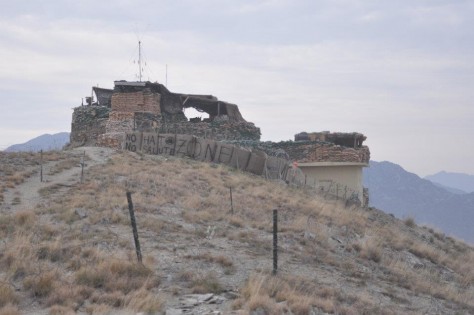 “We knew something bad was going to happen,” Watson says.
“We knew something bad was going to happen,” Watson says.
The men darted through the OP, digging into their supplies and preparing as best as they could for the fight that loomed ahead.
“All day, we got ready. We changed out batteries,” Watson says. “We put ammo in place.”
The men donned their full battle rattle. They manned their weapons. This included two .50 caliber machine guns, a Mark 19 grenade launcher, two M-240 machine guns, and rifles.
Around nightfall, the interpreter announced a sobering update. He heard the Taliban say they could see the Mad Dogs’ eyes.
“We knew right then. Shit was gonna get real,” Watson says.
Reports emerged that some 60 Taliban were advancing up the mountain, covering themselves in blankets in order to conceal their heat signatures. Wood and his men intensely watched their surroundings.
Muzzle Flash! Muzzle Flash!
Suddenly, Marquardt spotted the enemy. “I was up in the tower,” he says. “I saw two Taliban with an RPG.”
“Muzzle flash! Muzzle flash!” Marquardt yelled. He popped off three rounds from his M-4.
For a moment, the OP fell to silence.
“Everyone stood stock still,” Watson says. “We didn’t think it was real. We couldn’t believe we were being shot at. But we were. We were being attacked.”
An instant later, everyone let loose.
“There were a few muzzle flashes, and then it just went crazy,” Wood says.
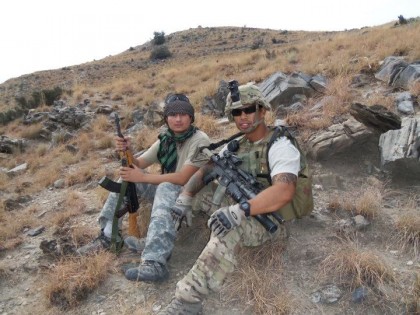 The Taliban hit hard. They blew up the Americans’ food and water supplies. They pounded the OP with machine gun fire and shoulder-fired anti-tank rocket launchers (RPGs).
The Taliban hit hard. They blew up the Americans’ food and water supplies. They pounded the OP with machine gun fire and shoulder-fired anti-tank rocket launchers (RPGs).
“I was nauseous and sick from the RPG blasts,” says Camillo, who manned a .50-caliber machine gun. The blast waves kept bouncing back from the sandbags, and into Camillo. “I kept firing,” he says. “And they kept advancing.”
Watson, a cook emplaced with Infantry, stepped in as assistant gunner on a couple of weapons. He ran back and forth, delivering ammo to his squad mates.
Wood scuttled among the stations, communicating with Afghans from nearby smaller OP’s, and talking on the radio to platoon leader Melson. Wood continuously called for mortar and artillery from FOBs Joyce and Wright. The FOBs lobbed the requested rounds, but they soon ran low. By then, the night was pitch black from cloud cover.
Wood called for illumination.
“It was chaos,” Wood says. “You couldn’t hear anything but the sounds of battle.”
The fight raged for hours.
The Mad Dogs’ weapons overheated and jammed. Still, they had to fight. If not, they would suffer the fate of the Spetsnaz before them. The men cooled the searing hot barrels by peeing on them.
“We couldn’t leave our weapons,” Camillo says. “We were filthy. Beat. And they kept coming.”
“We had no break,” says Wayne Woods, who was spending his 21st birthday manning an M240 machine gun. “We had no choice. We had to keep fighting.”
Marquardt remained in the tower, calling out enemy positions: “Rocket at two o’clock! Muzzle flash twelve o’clock!”
“We hammered it,” Watson says. “We fought full out.”
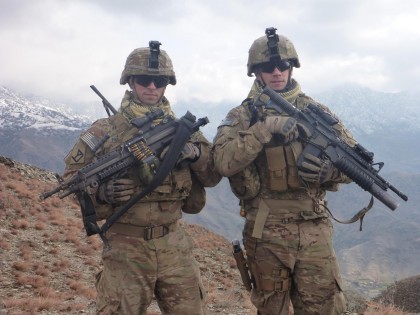 “I was trying to create a wall between us and them,” Wood said. “It was a constant barrage. A lot of firepower; a lot of violence.”
“I was trying to create a wall between us and them,” Wood said. “It was a constant barrage. A lot of firepower; a lot of violence.”
Several hours into the battle, the ammo supply dwindled to dangerously low levels. The Taliban showed no sign of problems with resupply.
Wood radioed FOB Wright: “It’s getting rough up here. When are you sending help?”
The answer came cold over the wire, a decision relayed from the PRT commander, a Navy officer: “We’re not.”
The embattled Mad Dogs were stunned.
“We all looked at each other,” Marquardt says. “We told ourselves, holy hell. We’re gonna die. We had no air cover. No support. Nothing. This was it. We’re gonna die.”
The men briefly went silent.
“Then we just started laughing,” Marquardt says.
But the men also reminded themselves of what their training had instilled in them: You’re never out of the fight. Inspired anew, the exhausted Mad Dogs rallied, telling themselves: “Man up. Let’s go. If we die, hell with it. Let’s go.”
“We accepted our deaths,” Watson says. “After that, I noticed a change in our fighting ability. We fought like we didn’t have a care in the world.”
On a channel separate from the one he used to communicate with the FOB, Wood radioed the platoon leader, Melson: “We’re not going to make it through the night.”
Melson was fully aware of what lay in store for 3rd Squad. He also knew what they were capable of. During train-up, these hard-charging National Guardsmen had garnered praise from SEAL commanders. But the odds were against them. Sixty to nine, with scant ammo for the nine, added up to a bad outcome for the Americans.
From inside the TOC, Melson and a much revered officer I’ll call Gaius, because he reminds me of a Roman warrior, planned to send in a quick reaction force (QRF). Incredibly, the nearby 25th ID did not know Americans were on the mountain, and the PRT commander was reluctant to authorize a QRF.
The men nevertheless rallied into a standby rescue force.
“I ran to my room,” DeLano said. “I had 2,000 rounds of 5.56 for my SAW,” his M249 Squad Automatic Weapon. “I packed that, and a few pairs of socks and underwear. I ran to the TOC.”
Soldiers jostled to be placed on the QRF. Their best friends were on that mountain. Men later said they were prepared to lose their own lives if it meant saving their friends.
“I would rather die trying than leave those guys to face that alone,” one said.
But the roster had to be chosen carefully. Melson handpicked a medic and others whose skills would be needed, and tasked a second group as backup, in case the QRF went down.
At FOB Wright, the men began loading up “speedballs,” body bags filled with essentials: one with ammunition, the other with water. Even then, they had no choice but to agonize over their fellows’ bad fortune. The mountain was high and steep. The only path up was filled with IED’s, and was heavily booby-trapped. Even unhindered, the journey was about five hours by road. The only way to reach OP Nevada quickly was via helicopter. None were available, and the QRF still had not been given the green light.
“We saw the muzzle flashes, we saw the firefight,” Melson says. “All we could do was watch from across the valley.” But, he adds: “Those were my boys on OP Nevada. I wasn’t going to let them do this alone.”
Gaius pushed hard to get approval for the QRF. At one point, he was thrown out of the operations center – but he returned, and kept pressing.
“They were getting pounded,” he says. “They needed help.”
Inside the TOC, a computer monitor showed what was going on with military in the area.
“I saw two blue dots on the screen,” Melson says. “I tapped on the screen.” The dots came up as two Blackhawks.
Melson contacted the pilots. He explained the dire situation, and asked for help. At first, fate was against the Mad Dogs. The pilots said they were on another mission, to Jalalabad, and couldn’t divert. But by a freakish turn of providence, weather prevented the birds from landing at J-bad. The pilots agreed to ferry Melson’s QRF to a hot LZ atop OP Nevada.
Now it was up to the PRT commander.
Following some intense exchanges that some said involved an officer slamming his rank insignia on a desk, the PRT commander approved the mission.
The Blackhawks landed at FOB Wright.
The FOB came alive with activity. The Mad Dogs and the civil affairs commander loaded water and ammo onto the birds. The men jumped aboard. Then away went the QRF, headed for the fight.
“This is My OP – I’ll Do It”
The Blackhawks came in so fast and so hot that at first the squad on OP Nevada believed they were Special Forces.
Camillo yelled for someone to help him pry his hands off his weapon, so he could secure an LZ for the birds to land.
Wood refused to allow it. He told the men: “This is my OP. I’ll do it.”
Wood gave command of the OP to Camillo. Then, wearing only his pants and his plate carriers, Wood ran shirtless into the firefight. In one hand, he carried a weapon. In the other, an infrared strobe to show the helicopters where to set down.
Under withering fire, Wood navigated down the hill through the maze of razor wire. One false turn, and he would have become a casualty – ripped to shreds by the wire, or shot by the enemy. When Wood reached the site, he was closer to the Taliban than he was to the OP. Crawling now on his belly, he set out the strobe.
The first Blackhawk carried a familiar figure.
“I see this dude hanging from the Blackhawk, spitting fire, with a beacon on his helmet,” Marquardt says. “I knew only one guy who wore a beacon like that. The guy jumps out, races into the hot LZ, and starts screaming orders.”
“It was Melson!” says Wood, who nearly was hit by the second Blackhawk. “In the middle of this chaos, it was Melson.”
“There’s nothing like the sound of that voice screaming in combat,” Watson says. “It’s a piercing, piercing voice. I was more scared of that voice than I was of the Taliban, and was so happy to hear it.”
The strobe was blown away from the LZ, DeLano later said. The second bird, that he was on, landed just off the LZ, nearly on top of other men. “I kicked out the ammo and jumped out. We started dragging the ammo.”
Bullets were flying between the Taliban and the OP. The men of the QRF were smack in the middle.
“We were afraid we were going to shoot our own guys coming to help us,” Private Woods says.
Amid the pandemonium and in the dark of night, Woods did not see the entire QRF arrive at the OP. His mind assumed the worst. He thought Melson was captured by the Taliban. And Woods had to act.
“I was like, ‘I gotta get Sergeant Melson!’ “ Woods says. Frantically, he ran toward the enemy. “I ran to get him back from the Taliban.”
DeLano, still dragging his ammo uphill, did a double take.
“Woods out of nowhere went running past us toward the Taliban. He didn’t have a weapon.”
Woods pressed on, charging heroically down the mountain – towards certain death.
The men were horrified. But before any of them could act, there came another stroke of fate.
Heading directly into enemy fire, Woods tripped. He fell forward into the dirt. He fell at precisely the right time.
“A bullet flew right over me,” he says. “If I hadn’t tripped, it would have hit me.” He continued in a low crawl toward the Taliban.
Somehow, amid the cacophony, Woods heard Melson screaming at him from the OP.
“I ran back. When I got there, he yells, ‘You scared the shit out of me! Don’t ever do that again!’ I didn’t care that he was mad. I was just so glad to see he was okay.”
The rest of the squad, meanwhile, was revitalized by the QRF’s arrival.
“They came at just the right moment,” Camillo says. “I was so tired I didn’t care if a bullet hit me in the face.”
“They had water. Food. Ammo. People to replace us on the guns,” Watson says. “We were smoked. But we couldn’t stop fighting.”
Camillo’s hands were locked in place on his weapon. “I had been holding it so long, I couldn’t let go,” he says.
“We’re Fighter Pilots; We Don’t Drop Flares”
Bolstered by the QRF, the men rallied yet again and blasted the Taliban without mercy.
Squad leader Wood radioed for help. He managed to reach an F-16 squadron.
The pilots scrambled, loaded with 500-pound bombs. The pilots approached the point where they had to release the bombs or return to base. They were getting too close to the OP.
According to people who were there at the time, the scene inside the TOC grew intense. Several people who were there told Soldier of Fortune that an officer asked the pilots if they could drop flares, to scare the Taliban into retreating.
The jocks responded: “We’re fighter pilots. We don’t drop flares.”
The pilots were given the okay to unleash their bombs.
A pilot’s voice came through on the radio with a message for the group atop OP Nevada: “You tell those boys to keep their heads down.”
The mountainside rocked. The OP shook violently, raining debris onto the Mad Dogs’ heads. The carpenter, DeLano, later said he prayed that his reinforced structure would hold up.
The dust settled. The Taliban stood down. The mountain fell still.
The fight had raged for 18 hours.
“It Was Very War of 1812“
The men on the QRF told their 3rd Squad fellows to take a break.
“Our adrenalin was pumping for so long, we didn’t know we were tired,” Watson says. “But [Sgt Kevin] O’Boyle from the QRF said, ‘We got this. Get some food and some rest.’ We all went and peeled off our gear.”
In the meantime, Gaius had been watching the mountain “like a nervous parent” from inside the TOC.
“Those guys were rocking and rolling all night,” he says. “It was relentless.” The Taliban had massed inside their network of caves, and took cover there while attacking in waves, he says. “Our guys held fast. They were really heroic.”
At sunrise, there came a stirring sight.
“There was the American flag they flew on top of a radio pole. When the sun came up, the flag was still there. It was very ‘War of 1812.’ The flag was still there.”
He stood filled with pride.
Afterwards, assessors figured out how many enemy were killed.
“They pieced together from body parts that were strung outside the wire,” a source who was there told Soldier of Fortune. “There were 13 enemy dead.”
The Americans all survived. The men of 3rd Squad recouped in their bunks atop the OP.
Says Watson: “ I think I slept for four days.”
“Crazy Americans”
In March 2012, the deployment ended. Melson had returned home the previous fall, but the rest of the Mad Dogs remained, to embark on many additional missions under platoon leader Jeremy Drew. They encountered IED’s, complex attacks, washed out bridges, and more – including another treacherous rotation atop OP Nevada.
Throughout the deployment, the Mad Dogs survived. Later, at home, the unit saw heartbreaking tragedies among three men from the QRF. Memories of them are treasured – and their stories are best told at another time.
The men received awards for their actions that July atop OP Nevada. Brian Wood was given a Bronze Star with “V” for his mission under fire through the razor wire. But he dispensed an award, himself.
Wood had kept the flag that flew that night over the embattled old outpost. In a moving surprise during the ceremony, Wood presented the flag to Gaius.
“I was very touched, very honored,” the recipient says.
Perhaps the highest honor came via the Taliban.
After the harrowing Battle of OP Nevada, the Mad Dogs’ interpreter laughed while listening to enemy transmissions.
“We asked them, what are they saying; what are they saying?” Camillo recalls.
The interpreter translated the Taliban’s advice to one another: “Thank God they’re leaving. Don’t mess with those guys. They’re crazy Americans.”
“They didn’t mess with us after that,” Marquardt says. “They knew who we were. We were the Mad Dogs.”
Susan Katz Keating is the publisher and editor-in-chief at Soldier of Fortune.
© Copyright by Susan Katz Keating. All rights reserved.
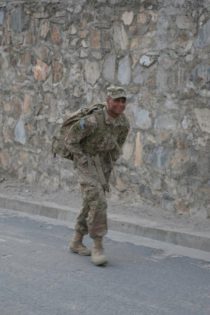
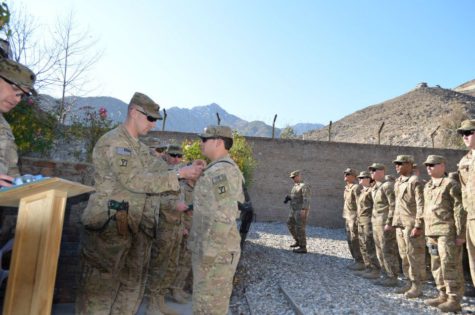
 Soldier of Fortune Magazine The Journal of Professional Adventurers
Soldier of Fortune Magazine The Journal of Professional Adventurers


